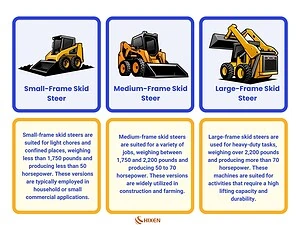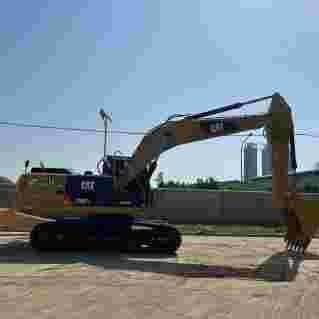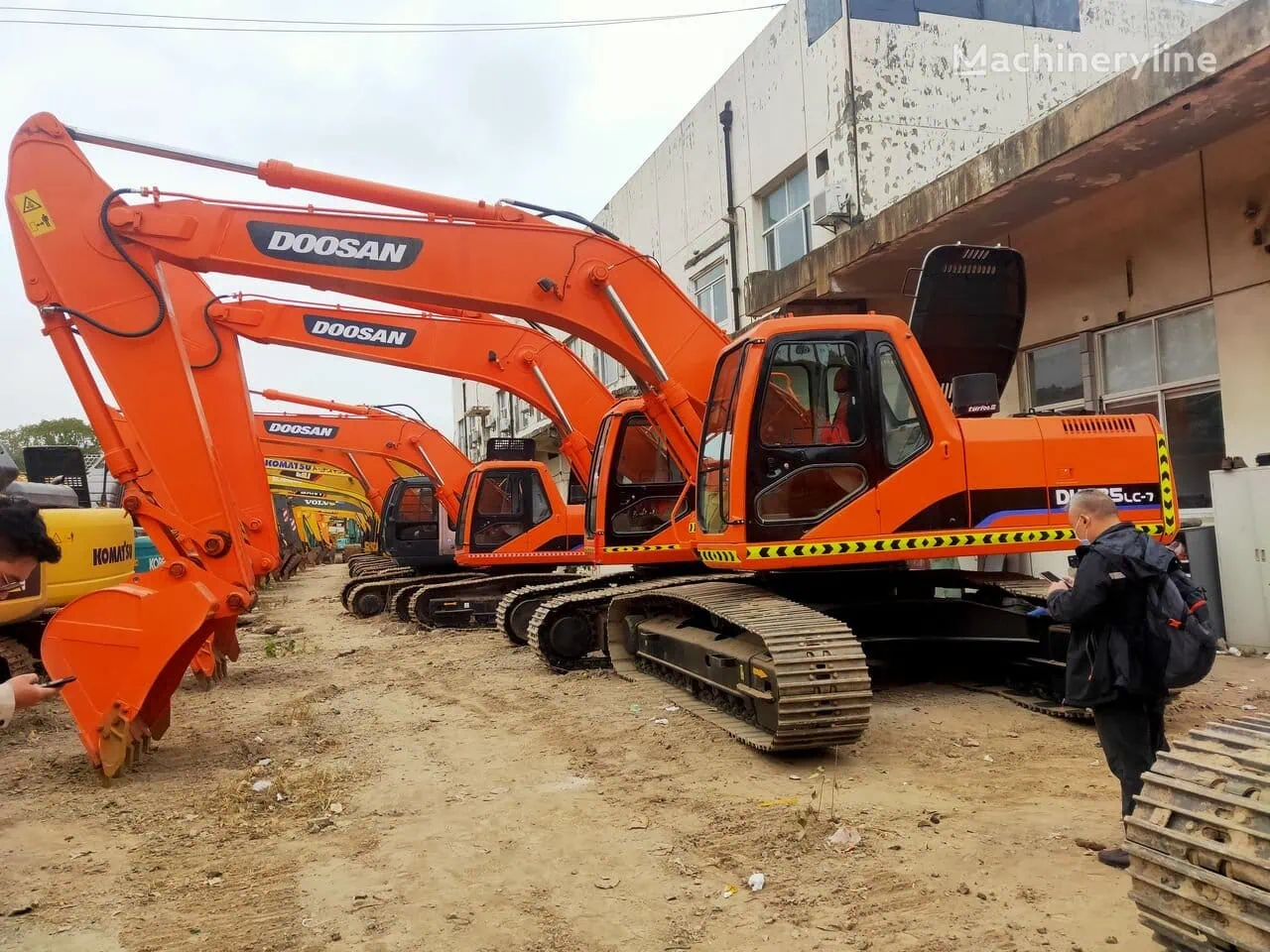Choosing the right excavator for earth excavation can be an overwhelming process. With different types of soil, different terrains, and different excavation depths, choosing the wrong excavator will lead to inefficiency and extra costs. In this guide, we’re going to break down the key points you need to know to get the perfect excavator for your project.
When choosing an excavator for earth excavation, it’s essential to consider the project size, soil type, and depth. Mini excavators are perfect for small tasks, while crawler and wheeled excavators handle larger, more complex jobs. Each machine offers unique benefits that can make your excavation work smoother and more cost-effective. Explore our detailed guide to find the best fit for your needs.
Now that you understand the basics, let’s dive deeper into the factors that will drive your decision.

Table of Contents
ToggleWhat Is Earth Excavation?
Earth excavation is the process of digging, removing and relocating earth or other materials, in order to prepare a construction site or landscape for building or other infrastructure work. Excavation can include the digging of foundations, creating trenches, or clearing the land in order to make room for new structures or utilities.
Types of Earth Excavation: The excavation process can be broken down into several types, each with its own specific purpose:
| Type of Excavation | Description | Common Uses |
| Trenching | Digging narrow, deep excavations to install pipes, utilities, or cables. | Utility installation, drainage systems. |
| Foundation Excavation | Excavating larger areas to create foundations for buildings or other structures. | Building foundations, basements. |
| Site Preparation | Clearing land and leveling the ground for construction or landscaping. | Land clearing, grading for building sites. |
Challenges of Earth Excavation Work:
- Soil Conditions: Depending on the type of ground the excavator needs to move, the type of soil (like clay, sand, gravel) can mean an easier or harder dig and a different category of excavator.
- Depth of Excavation: Excavating deep places means a longer arm on the excavator plus machine power.
- Project Scale: The bigger the project, the bigger the excavator or the more power you need. Small jobs can be done with compact equipment.
Factors to Consider When Choosing an Excavator for Earth Excavation
In essence, the type of ground a person works with can be a deciding factor in what type of excavator you need to use:
| Soil Type | Recommended Excavator Features |
| Loose Soil | Smaller excavators with standard buckets. |
| Clay Soil | Machines with powerful hydraulic systems and high torque. |
| Gravel/Rock | Excavators with heavy-duty attachments like hydraulic breakers. |
Depth and Volume of Excavation: How deep you dig and how much you have to move determines the size of the excavator you need. Large-scale operations, like digging a foundation for a new high-rise building, require
a heavy-duty machine, maybe a tracked excavator to handle the hefty load.
Machine Size and Power:
| Excavator Size | Ideal For |
| Mini Excavators | Small projects, residential landscaping, confined spaces. |
| Standard Excavators | Medium-sized projects with moderate depth and volume. |
| Crawler Excavators | Heavy-duty tasks, deep and large-scale excavations. |
- Worksite Access and Space: If someone needs to work in places with limited access, like in a tight urban construction site, a restricted space, or inside an existing structure, they’re usually going to use a smaller machine , because a mini has the ability to maneuver into and out of tight spots with ease.
- Attachments and Customization: Putting the right attachment on an excavator can make a huge productivity difference. There are a wide variety of potential attachments available for excavators in addition to the bucket you use for earth excavation including.

Best Types of Excavators for Earth Excavation
The type of excavator you use to remove earth for a particular bucket will depend on the scale and complexity of the job you are doing, as well as the working environment you’re in. Let’s take a look at the best types of excavators you can use for different earth removal needs.
Mini Excavators
A mini excavator is perfect for small excavation operations such as digging a trench, landscaping in a small area, or doing a small residential domestic construction project. This machine is small, compact, can slip in and out of areas where a larger machine could not easily be operated, and it’s typically used for shallow excavations or tasks where good mobility is needed.
Advantages
- Maneuverability: Smaller size means they can get into tighter spots.
- Cost: Mini excavators are usually cheaper to buy and cost less to run.
- Versatility: They can do many different tasks, from digging a trench to doing demolition work.
Crawler Excavators
If you need something bigger and you’re doing lots of heavy-duty excavation work, your go-to machine is a crawler excavator. A crawler excavator is what you use for things like digging a foundation, grading the land, excavating a big hole, or doing anything heavy-duty where you need big buckets, high breakout power, strong hydraulics, and to be able to work quickly. Crawler excavators are super stable, even on uneven or rough terrain, because the dozers provide a super wide and stable track base.
Advantages
- Comfort: They come with state-of-the-art cabin designs, which are invaluable for long days at construction sites.
- Versatility: You can equip them with a variety of attachments for their bucket, including drum cutters, breakers, etc.
- Minimal ground disturbance: Compare much more favorably in this capacity compared to rubber-tired excavators.
Wheeled Excavators
Wheeled excavators also offer a smooth ride for the operator, which leads to less fatigue on long days at construction sites. You can find models with modern, comfortable cabs that make a huge difference on those long days. These machines offer versatility in that you can equip them with all kinds of attachments for their bucket: grapples, drum cutters, breakers, and more. They promise minimal ground disturbance compared to a rubber-tired excavator. If a single contractor does sewer lines and then fills in the trench, the wheeled excavator will compact the dirt better. Rubber-tired machines twist and turn in a way that doesn’t compact the soil as well as a wheeled machine.
Advantages
- High mobility: Their wheels allow them to move quickly between job sites without needing a transport vehicle.
- Efficiency: Ideal for lighter excavation tasks, they can perform effectively on hard, paved surfaces.
- Versatility: These machines are perfect for projects in urban areas with space constraints and frequent site changes.
Long Reach Excavators
In addition, long reach excavators can often be operated from a safer distance, away from the unstable ground adjacent to the excavation. There are different lengths of booms and arms that you can choose from, depending on the depth, width, and reach you need. If you require in excess of 29 feet 8.5 inches reach or 59 feet 13.5 inches depth, a custom long reach boom and arm can be ordered. You can also order a midsize long reach to attain either dig depths or reach tailored to your requirements at the time of your machine order.
Advantages
- Long reach: A long reach excavator can dig deeper than a standard one, which makes it perfect for river or canal dredging projects.
- Specialized use: Their long reach makes them perfect for locations where a standard excavator cannot reach properly.
- Productivity: You’ll get more work done, because you’ll need fewer pieces of specialized equipment to handle hard to reach areas.
Hybrid Excavators
Hybrid: Hybrid excavators are a mix of both worlds, integrating traditional fuel engines with electric power to be more environmentally conscious. These are ideal for earth excavation work, especially if you are in an area with strict environmental regulations. Hybrid models also use less fuel, which saves you money in the long run.
Advantages
- Reduced emissions: Hybrid systems minimize fuel consumption and lower emissions, which is better for the environment.
- Better fuel efficiency: They consume less fuel, which costs less money over the long term.
- Less environmental impact: Great for working in places where being eco-friendly is a very high priority.

How to Choose the Right Excavator for Your Earth Excavation Work
Determining which excavator is the right choice for your job involves looking at a number of factors, including your jobsite, the size of the machine you need, the ground condition, how long the job should take, how much you are willing to spend, dealer services, and, most importantly, the skill level of the operator.
Assess the Scope of the Project
To select an excavator, first determine the size of the excavation. Smaller excavations such as landscaping or a small trench can often be done with a mini excavator. Major work such as house foundations, roadbeds, mining, or heavy dirt moving is typically done with larger machines like trackhoes or a long reach.
- For light-duty work: Mini excavators are perfect for little bitty jobs where you don’t have a whole lot of earth to move.
- For medium to heavy-duty work: If you’ve got some dirt to move and need power and stability, use a crawler or wheeled excavator.
- For deep or specialized: When you need to reach down a long way or out a super long way, use a long reach.
Factor in Site Conditions
The different types of ground and site conditions can determine the type of excavator you choose to rent.
- Soft Soil: If the job is in loose ground, sandy soil, or other easy-to-dig material, your standard excavator with moderate power will be able to dig and pick up material relatively easy.
- Rock: If you are in rock or tough, uneven ground, you will need a heavy-duty excavator with a big hydraulic system to power the buckets and maybe a breaker to break rocks loose.
Budget and Operational Costs
Renting is usually a rental decision 100% based on cost. An operator doesn’t really get to pick the best machine for the job; they get to pick the machine that they can afford on a given day. Mini excavators are generally the most affordable to buy and rent as well. But a trackhoe, with its added bucket and weight capacity, can be more
expensive to rent and buy. The biggest machine—a long reach excavator with a sixty-foot stick— will obviously be the most expensive to rent or buy.
- Initial cost: Smaller machines are usually way cheaper than a big one. Operational cost: Sometimes the big machine is a lot cheaper to run.
- For example, a big crawler and a twenty-foot boom might save you twenty percent on fuel and parts compared to a smaller machine with a lot of wear and tear on it.
Top Excavator Brands for Earth Excavation
| Brand | Best For | Advantages |
| Caterpillar (CAT) | Heavy-duty, large-scale earth excavation. | Known for durability, powerful machines. |
| Komatsu | Varying soil conditions and efficiency. | Fuel-efficient, reliable for tough conditions. |
| Hitachi | Challenging earth excavation tasks. | Advanced hydraulic systems for high performance. |
| Volvo | Eco-friendly and efficient projects. | Lower emissions, fuel efficiency. |
| Kubota | Small, confined spaces and residential projects. | Compact, cost-effective, great for tight areas. |
Additional Tips for Efficient Earth Excavation Work
| Fuel-Efficient Excavators | Key Features |
| Hybrid Excavators | Eco-friendly, reduced fuel consumption, lower emissions. |
| Volvo Excavators | Designed for sustainability, high fuel efficiency. |
Optimizing Excavator Performance for Fuel Savings: To save on fuel costs, consider the following:
- Adjust the digging speed based on the task.
- Use eco-friendly settings on modern machines.
- Perform regular maintenance to ensure peak fuel efficiency.
Investing in fuel-efficient machines may cost more upfront, but the long-term savings in fuel consumption and operational costs are well worth the initial investment.
How to Handle Different Types of Soil in Earth Excavation Work
- Soft vs. Hard Soil: Pick the right machine for the type of soil you’re excavating to maximize your efficiency. You’ll need an excavator with more torque and a larger bucket for hard soils.
- Wet Conditions: If you’re working in wet conditions, be sure to use a machine with wide tracks or tires to handle slippery surfaces and mud.
- Rocky Terrain: If you’re working in rocky terrain, you need an excavator with specialized attachments, like a hydraulic breaker, to quickly break and remove the rocks.
Summary
When you choose an excavator for your earth excavation work, consider your project size, conditions at the site, the size of the machine, and its power. Look at your options and make the right choice. Understand the scope of the work at your jobsite. Talk with experts. Determine the best option.
Reliable brands like Caterpillar, Komatsu, and Kubota have machines for all sizes of earth excavation work.
Talk to the experts. Look at the brands. Find the right excavator for your earth excavation project. Then take action to get your earth excavation done efficiently as possible today!










